European court hears landmark case on trans rights in Hungary
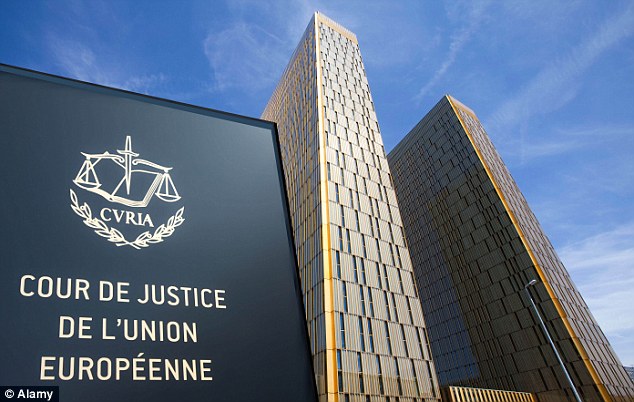
The Court of Justice of the European Union held a significant hearing today concerning legal gender recognition for trans people in Hungary
Today, the Court of Justice of the European Union (CJEU) heard the case Deldits (C-247/23), which involves a trans refugee in Hungary who has been denied legal gender recognition (LGR) since 2021. Represented by Háttér Society and the Hungarian Helsinki Committee, the complainant, who was granted refugee status Hungary in 2014, has sought judicial review under Article 16 of the EU’s General Data Protection Regulation (GDPR).
This case raises crucial questions for the CJEU: whether GDPR mandates the rectification of personal data, including gender marker, upon request; what evidence is necessary to support such requests; and whether medical or surgical interventions must be proven.
In addition to the European Commission and advocacy groups, the governments of Hungary, France, Spain and the Netherlands participated in today’s hearing, highlighting its broader implications for LGR in Hungary.
The Budapest-Capital Regional Court’s referral to the CJEU marks a pivotal moment in the ongoing battle for trans rights in Hungary. Despite the 2018 Constitutional Court decision and the 2020 European Court of Human Rights judgement affirming these rights, the Hungarian legislature has yet to implement necessary changes. LGR for both refugees and Hungarian citizens has been banned since 2020.
According to Katrin Hugendubel, Advocacy Director at ILGA-Europe: In its final judgment, the CJEU will have the opportunity to address the discrimination faced by trans EU citizens when a gender marker that does not correspond to their gender identity is recorded in the national registrars. The case is of the utmost importance to protect the rights of trans citizens in Hungary and across the EU, notably in the context of the Hungarian ban on legal gender recognition.
The opinion of the Advocate General is expected on 12 September 2024. The CJEU’s decision is anticipated later in the autumn, and it holds significant potential to influence the legal framework for trans rights within Hungary and the broader EU.
ILGA-Europe, alongside Transgender Europe (TGEU), are providing support to Háttér Society in this case.
Read the press release by Háttér Society here.
Top European Court Strikes Out Case Against Azerbaijan for LGBTI Arrest and Torture
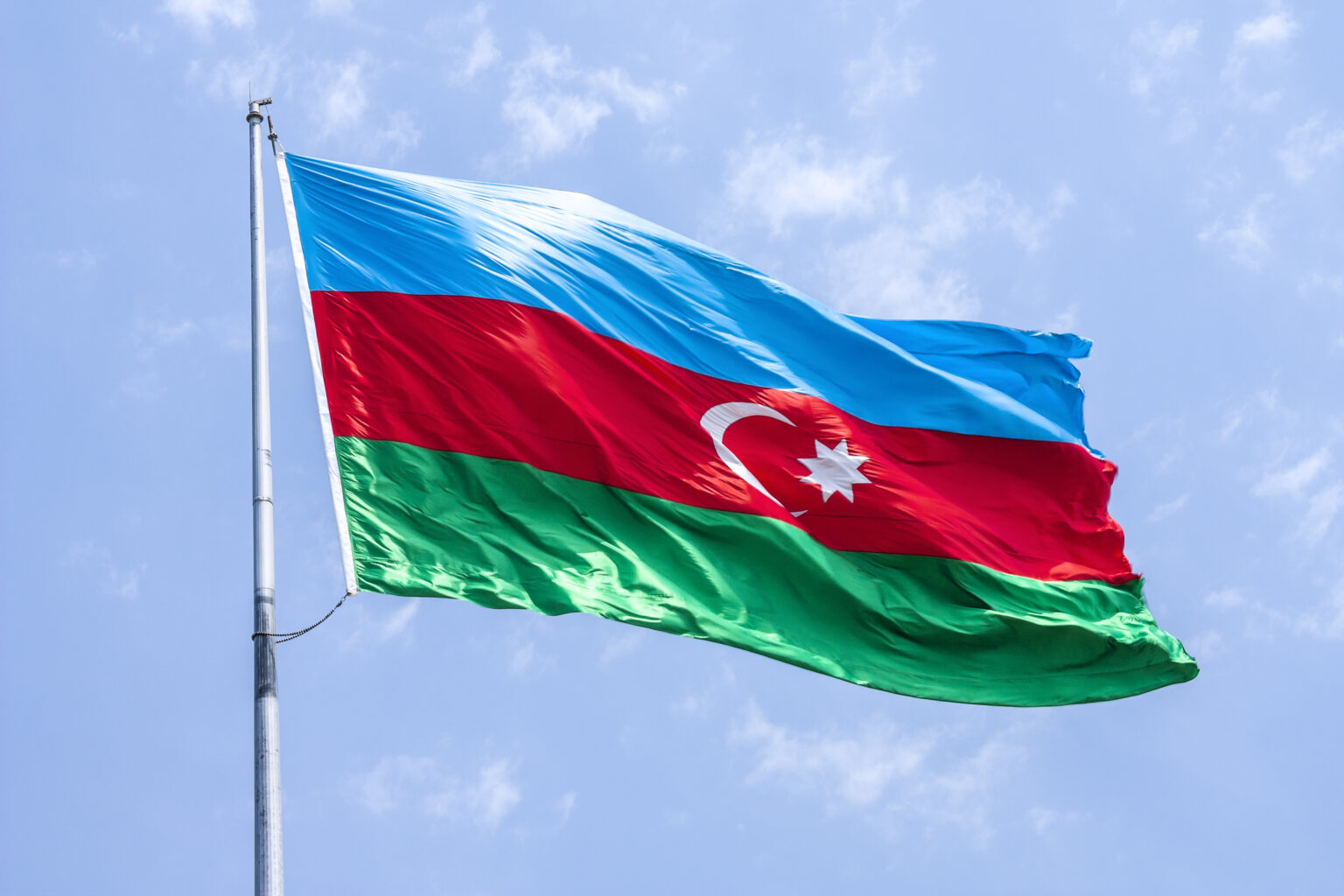
A case against Azerbaijan by a large group OF applicants who were arrested in a wave of anti-LGBTI police raids and forced to undergo medical examinations has been struck out by the European Court of Human Rights
Last week, the European Court of Human Rights decided to strike out A. v Azerbaijan and 23 other applications. The case involved a wave of police raids in Baku in September 2017 that led to the arrest, ill-treatment and forced medical examinations in detention of members of the LGBTI community.
In its decision, the Court considered that it was no longer justified to continue the examination of the applications given the Government’s unilateral declaration made in 2019, according to which it acknowledged that “there was a violation of the applicants’ rights guaranteed in the Convention” and offered to pay compensation to the applicants.
The applicants expressed deep dissatisfaction with this declaration, saying the Government’s acknowledgement lacks specificity regarding the nature and extent of the violations; the Government gave no undertaking for general measures to prevent future violations and there are no necessary provisions under domestic law for holding the perpetrators of those acts of violence accountable. This is particularly problematic as those groups kept being targeted subsequent to the 2017 arrests, in view of their perceived SOGIESC.
According to Leyla Osmanova, a victim of 2017 arrests, “The world saw it, the world knew about it. We were tortured, literally. Even a million dollars cannot cover the cost of psychological trauma, as I continue to live in fear. Although I am in a safe place now, that psychological trauma ruined my life. The court process took a long time, the decision is just a mere decision, the compensation is ridiculous.”
She added: “This event made me long for my native country. I have lost faith not in the country, but in the police and laws there.”
ILGA-Europe together with Civil Rights Defenders and REDRESS had submitted a third-party intervention in the case. Azerbaijan currently sits at the bottom of the ILGA-Europe Rainbow Map, which ranks all 49 European countries on a scale between 0% (gross violations of human rights, discrimination) and 100% (respect of human rights, full equality).
Trans and intersex rights at the forefront of positive change for LGBTI people in Europe, Rainbow Map finds
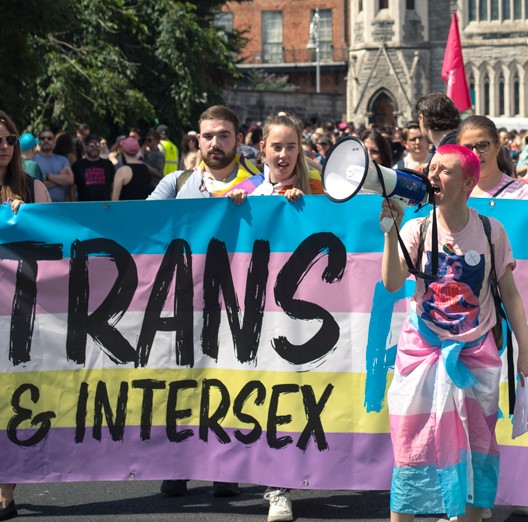
Despite intense anti-LGBTI attacks in several countries, equality is still advancing across Europe, ILGA-Europe’s annual Rainbow Map and Index shows.
The latest Rainbow Map and Index from Europe’s leading LGBTI organisation, ILGA-Europe, finds that while the public discourse is becoming more polarised and violent, particularly against trans people, political determination to advance LGBTI rights is paying off. The largest gains on the map are for countries that introduced legal gender recognition (LGR) using a self-determination model.
Published on Thursday, May 11, 2023 at the IDAHOT+ Forum in Iceland, ILGA-Europe’s annual Rainbow Europe Map and Index, ranking the legal and policy situation of LGBTI people in 49 European countries, finds that over the past 12 months bans on intersex genital mutilation (IGM) are also bringing countries up in the ranking. Spain jumped six places to number four with its introduction of LGR with self-determination, alongside a ban on IGM, while Finland entered the top ten, again up six places, again with LGR based on self-determination. Greece has also moved up four places with its ban on IGM.
Gender identity and sex characteristics are included in anti-discrimination and/or hate crime legislation, moving Belgium, Iceland and Moldova up the chart alongside Spain.
While the advancement of legislation recognising gender identity marks a major shift forward this year, there is more positive movement on the Rainbow Map and Index, notably:
- Moldova has jumped 14 places because sexual orientation and gender identity have been positively included in legislation covering employment, education, provision of goods and services, health, hate crime and hate speech.
- Slovenia and Switzerland switched positions. Both countries introduced same-sex marriage and joint adoption. Switzerland also allows medically assisted insemination for couples. Croatia too moved up one spot with its introduction of adoption for same-sex couples.
According to ILGA-Europe’s Executive Director, Evelyne Paradis: “As powerfully evidenced in this year’s Rainbow Map, the rise of anti-LGBTI rhetoric from anti-democratic forces, particularly instrumentalising false anti-trans narratives, is being fought back by politicians in Europe who have the courage to make a stand for the fundamental human rights and equality of every citizen. The map highlights the clear fact that progress for LGBTI people is still possible, and more important than ever, with the need for more leaders to push back on attacks on democracy for all by pushing forward. We commend those politicians who have taken the stance that needs to be taken for the good of everyone in our society, and we encourage more to step up to the plate as across Europe democracy and human rights are under threat from the far-right.”
Katrin Hugendubel, Advocacy Director at ILGA-Europe adds: “Governments, but also other political actors and institutions can and have been making a positive difference this year. A lot of progress relies on the Courts, for instance, at local, national and European level. Poland remains the country in the EU with the lowest ranking at 43rd place, but the country gained points in the index this year because of the courts ensuring that no surgical interventions are needed for legal gender recognition and the equality body extending its work to include intersex people. In a very hostile global climate, we are seeing different actors coming together, and weighing in more actively for LGBTI rights, which is crucial to counter the pushback.”
That pushback can also be seen in the challenge to freedom of assembly amid the rise of anti-democratic forces. Markedly, Serbia, which hosted a seriously compromised EuroPride march after last-minute attempts by the Serbian President and Minister of the Interior to ban the event, went down three places, while Turkey remains almost at the very bottom of the ranking after another year of crack-downs on Pride gatherings, showing that in 2023 the basic right to gather in a public space still cannot be taken for granted.
Released every May since 2009, marking International Day Against Homophobia, Transphobia, Biphobia, and Intersexphobia (IDAHOBIT), the ILGA-Europe Rainbow Map ranks all 49 European countries on a scale between 0% (gross violations of human rights, discrimination) and 100% (respect of human rights, full equality).
Executive summary 2023
Rainbow Europe – ILGA-Europe’s annual benchmarking tool – comprises the Rainbow Map and Index and national recommendations. ILGA-Europe have produced the Rainbow Map and Index since 2009, using it to illustrate the legal and policy situation of LGBTI people in Europe.
The Rainbow Map and Index ranks 49 European countries on their respective legal and policy practices for LGBTI people, from 0-100%.
In order to create our country ranking, ILGA-Europe examine the laws and policies in 49 countries using 74 criteria, divided between seven thematic categories: equality and non-discrimination; family; hate crime and hate speech; legal gender recognition; intersex bodily integrity; civil society space; and asylum. More information on the list of criteria and their weight on the total score can be found at www.rainbow-europe.org/about
Policymakers, researchers and journalists are able to go ‘behind’ the points and see the original information sources that we base our Map and Index ranking on. This additional layer of information is available through our updated Rainbow Europe web module, www.rainbow-europe.org.
The Rainbow Map and Index presents a picture of what the policy landscape is like currently, while our country-specific recommendations attempt to answer the question “what’s next?” These recommendations are intended to encourage policymakers to address the most pressing legal and policy priorities within the framework of our Rainbow Map and Index.
The recommendations were gathered following an online consultation with a wide range of LGBTI organisations in the various countries. As a result, the recommendations are tailored to the needs of activists working on the ground.
- For the eighth year in a row, Malta continues to occupy the number one spot on the Rainbow Europe Map, with a score of 89%.
- With 76 points, Belgium now occupies the second place with a rise of four points due to the inclusion of gender identity and sex characteristics as aggravating factors in the country’s penal code.
- Denmark comes third place with a score of 76 with the rise of two points due to its new equality action plan, which includes specific measures on sexual orientation and gender identity but falls short of inclusion of projects on sex characteristics.
- The three countries at the other end of the Rainbow Europe scale are Azerbaijan (2%), Turkey (4%), and Armenia (9%), exactly the same as the last three years. Among them, only Armenia increased an index point after revoking its ban on blood donations from men who have sex with men.
- Spain, Iceland, Finland, Moldova, Switzerland, and Croatia are the countries with the biggest jump in scores. Spain introduced a comprehensive law that regulates legal gender recognition (LGR) based on self-determination, banned genital mutilations on intersex minors, prohibited so-called “conversion” practices and outlawed discrimination based on sexual orientation, gender identity, and sex characteristics.
- Iceland adopted an equality action plan, included gender identity and sex characteristics in their equality law, and added sex characteristics protection in the penal code. Moldova also amended its equality law and penal code to include sexual orientation and gender identity.
- Finland adopted its Trans Law which regulates LGR based on self-determination.
- Switzerland’s legislation on marriage equality came into effect, which also gave the right to joint adoption and medically assisted insemination for same-sex couples. In Croatia, same-sex couples can now apply for joint adoption and second-parent adoption after a court decision.
For further comment, contact: Ana Muñoz Padrós, ILGA-Europe: ana@ilga-europe.org, +32 493 35 60 55
Intersex people are among the most vulnerable among the LGBTI population, study finds

A new report from ILGA-Europe in association with OII Europe finds that Intersex people experience some of the highest levels of discrimination and marginalisation of all groups surveyed in the most recent cross-European LGBTI study.
For our latest Intersections briefing, we have partnered with OII-Europe to look deeply into the lived experiences of intersex people across Europe, by disaggregating the responses of intersex people to the 2019 FRA LGBTI Survey II.
For readers who have not crossed paths with this survey before, in 2019, FRA (EU Agency for Fundamental Rights), conducted the second round of the LGBTI Survey which shows how LGBTI people experience their fundamental rights in daily life across Europe and remains the largest survey of its kind to date. For the first time, the survey included the experiences of intersex people and determined that intersex people experience some of the highest levels of discrimination and marginalisation across all groups included in the study.
The key findings
Intersex people are among the most vulnerable groups within the LGBTI population. The survey showed that intersex respondents reported lower levels of life satisfaction and much higher difficulties in making ends meet and housing difficulties. Respondents also reported higher levels of discrimination, as well as distrust in authorities and not knowing how to report discrimination. Finally, they also reported experiencing much higher obstacles to healthcare and higher exposure to physical and, especially, sexual attacks.
Intersex people from marginalised groups are at even higher risk. When your identity is at the intersection of vulnerable grounds, you are exposed to particular forms of discrimination. For example, in this briefing, we found that intersex respondents from ethnic minorities (including of migrant backgrounds) were more likely to experience homelessness and to avoid healthcare services. Trans intersex women were disproportionately exposed to discrimination when looking for work. Non-binary intersex respondents were more likely to feel discriminated against by school or university personnel and intersex people with disabilities reported a dramatically higher incidence of harassment.
Intersex people are subjected to non-vital medical interventions without their informed consent. Nearly two thirds of intersex respondents who were subjected to surgeries did not personally consent to the first decisions about their own bodies, stating that their “parents or someone else” or “no one” gave consent to their first treatment or intervention. This highlights the urgent need for education and training on intersex people’s needs and rights for all medical professionals. Many of these interventions are irreversible and have serious and lifelong consequences for the person.
This report finds that intersex people face significant vulnerability and some of the highest levels of discrimination. We will continue to call on governments and international bodies to ban non-vital medical interventions on intersex people without their informed consent, so the bodily integrity of intersex people is protected, which is their fundamental right.
You can check out the full briefing on intersex people here and previous Intersections reports on older people, youth, and lesbians.
For good and bad: The trending impacts on LGBTI human rights in Europe and Central Asia
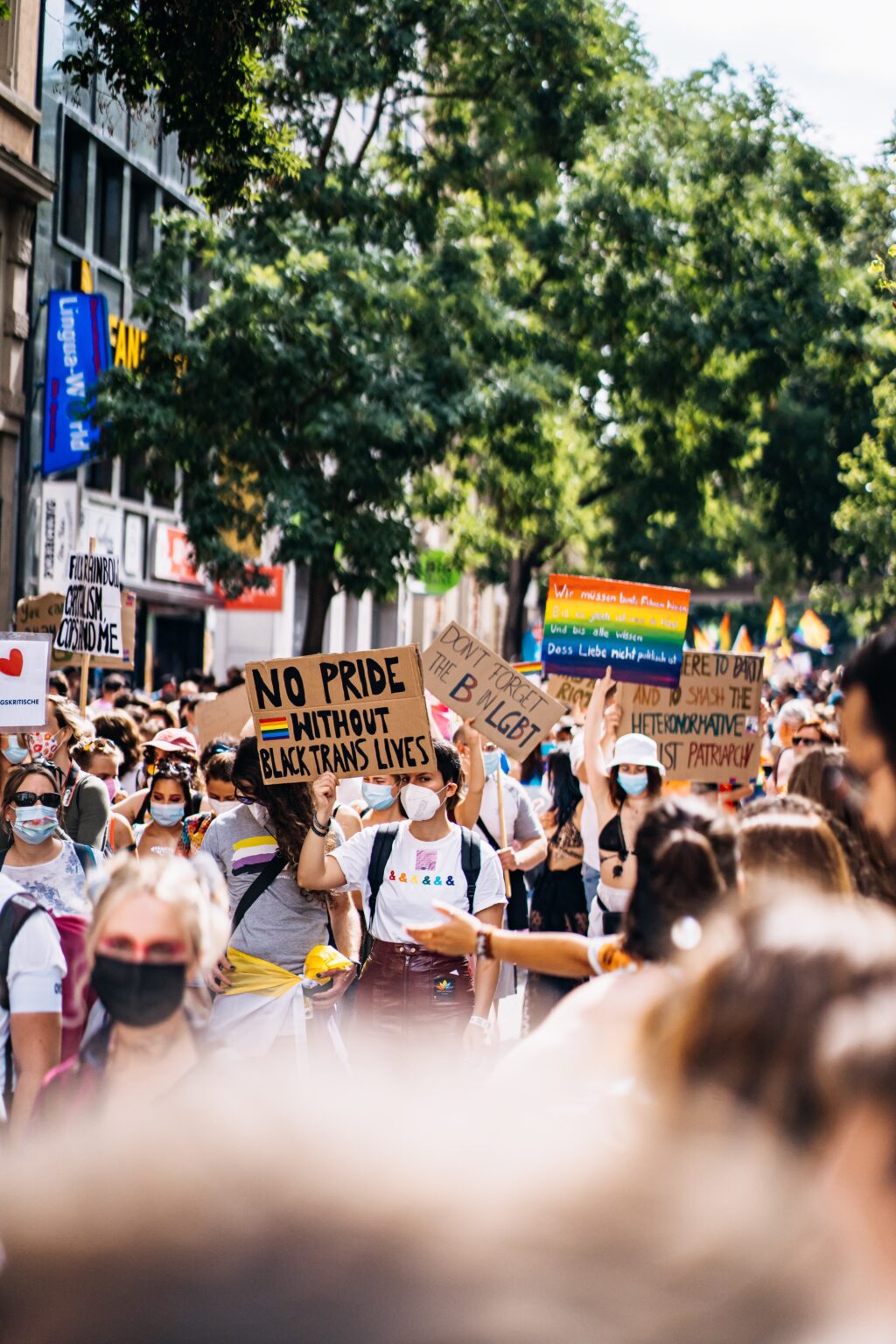
The most striking finding of ILGA-Europe’s Annual Review 2023 is a stark rise in the ferocity of anti-LGBTI hate and violence reported in Europe and Central Asia. But alongside this worrying trend, there are positive developments in areas such as legal gender recognition, public support, intersex human rights and civil society. Here are the key highlights.
At ILGA-Europe we’ve just published our Annual Review, showcasing the main developments and trends in the human rights Situation for LGBTI people in Europe and Central Asia. Disturbingly, the most striking finding this year is the levels of hate reported in the region. 12 years into this yearly reporting, the present edition finds that anti-LGBTI violence in 2022 was more targeted and extreme than ever in the history of our reporting.
Our Annual Review aims to paint a clear picture of the reality from the ground for our communities. It documents individual cases and events, as well as legislative, social and political advancements and regressions, and new available data. All reporting is based on the work of LGBTI activists in each country featured in these pages, as well as on our own work.
While the review points to the devastating consequences of the instrumentalisation of LGBTI people, mostly for political gain, there have been other developments in the direction of human rights and protection of LGBTI people.
We have not seen this severity of the violence before
For years, ILGA-Europe has been documenting the rise in hate while activists across the region have shown how anti-LGBTI speech, both online and by political and religious leaders, translates into violence harming people.
This phenomenon is across the board in this year’s Annual Review. For example, in France, the Ministry of Interior reported a 28% rise in hate crimes between 2020 and 2021. In Switzerland, LGBTI organisations reported a 50% increase between 2020 and 2021. Spain reported a 68% increase in 2021, while in England and Wales transphobic incidents rose by 56%.
There are also more reports than ever before of LGBTI people taking their lives, a clear sign how discrimination, hate speech and harassment are impacting mental health. In Italy, three trans women took their lives. Two of them were teenagers, the third woman was a teacher, who was suspended from school because she had socially transitioned. In Armenia, a young gay couple committed suicide after suffering harassment when a photo of them kissing went viral. These are just a few examples.
Sexual education is increasingly compromised
Education is a growing battleground in the resistance to LGBTI people and rights. In Hungary, as result of law banning LGBT content, teachers reported a fear of bringing sexual orientation, gender identity and other topics to the classrooms. In the Netherlands, 36 orthodox schools require anti-LGBTI declarations from pupils and parents, and the new Italian Prime Minister, Giorgia Meloni has publicly advocated for a ban on sex education in schools and the exclusion of LGBT people in children’s books.
Russia expanded its ‘propaganda law’ to prohibit positive and neutral information about LGBT people and “gender reassignment” to minors and adults. There was an alarming number of ‘propaganda’ charges or threats in educational establishments in the country. All in all, progression on sexual education is being challenged.
Public support for LGBTI people is growing
In parallel, the report finds growing support among societies for LGBTI people, also in countries where we might not expect it. For example, most Hungarians don’t consider ‘homosexual propaganda’ an important issue. In Poland, two thirds of the population support marriage equality and 60% support the abolition of anti-LGBT resolutions in the country.
What’s more, many politicians across Europe have shown their support throughout 2022. Many reacted with horror to the killings in Oslo and Bratislava and the European Parliament has publicly condemned the violations of LGBTI rights. We need more governments standing strong against hate in the media and online and more progress in advancing laws against hate crimes that protect LGBTI people.
There are more legal gender recognition laws that include self-determination
In the face of enormous backlash on trans people, and a number of forces trying to stop legal gender recognition (LGR), some countries made progress in 2022 and others showed a will to ensure a model of LGR based on self-determination.
Scotland, Finland and Spain were the best examples; by adopting LGR laws that include self-determination, these countries are showing a clear way forward for other governments.
Same-sex partnership is back on the agenda
After stagnating for a number of years, same-sex partnership recognition is on the rise again. Andorra adopted legislation to ensure heterosexual marriage and the recognition of same-sex civil partnerships guarantee the same set of rights. In Latvia, following a Supreme court decision ruling that same-sex couples should be given civil status, same-sex couples were recognised in court cases. Slovenia and Switzerland adopted marriage equality, including positive changes regarding adoption rights. Other countries took steps forward the adoption of laws that recognise same-sex partnerships.
While intersex human rights are rightfully taking a space in the agenda
There is also a growing awareness of intersex human rights across Europe. While Greece adopted a ban on non-vital medical interventions on children, the European Commission conducted surveys and interviews for the first EU study on the lives of intersex people and their parents (expected to be published this summer). The Council of Europe is preparing a Recommendation on intersex human rights while the Chair of European Commission against Racism and Intolerance and PACE General Rapporteur for the rights of LGBTI people shared supportive statements.
Behind every positive development, there are LGBTI activists doing hard work
LGBTI organisations and activists across our region are key to all the advances on LGBTI people’s rights and the support to their communities during 2022.
Despite difficult circumstances, more and more Prides are being organised, support for the most vulnerable in the community is provided and work with institutions and policy makers continues advancing LGBTI people rights.
More and more organisations report covering for gaps in service provision, and providing services where the community does not feel safe to access mainstreaming services, for example when it comes to shelter.
The most remarkable support was that of the LGBTI community in Ukraine through LGBTI organisations, as well as the support by activists across Europe for Ukrainian LGBTI refugees.
LGBTI activists are the central players in countries where progress has been made, as we’ve seen in Spain and Finland, where huge effort went into successfully keeping self-determined legal gender recognition on the right political track, despite fierce opposition.
The Annual Review of the Human Rights Situation of LGBTI People in Europe and Central Asia is published every February, as part of our Rainbow Europe package. We thank all those across 54 countries who worked with us to make sure our reporting was accurate.
Find out what’s been happening in your country here.
Deadliest Rise in Anti-LGBTI Violence in Over a Decade, our annual Report Shows

12 years into annually reporting on the human rights situation of LGBTI people, Europe’s leading LGBTI equality organisation finds that pervasive hate speech across the region has led to life or death consequences.
Launched today in Brussels, ILGA-Europe’s Annual Review of the Human Rights Situation of LGBTI People in Europe and Central Asia finds that 2022 was the most violent year for LGBTI people across the region in the past decade, both through planned, ferocious attacks and through suicides in the wake of rising and widespread hate speech from politicians, religious leaders, right-wing organisations and media pundits.
This is the 12th edition of ILGA-Europe’s report, which has charted the growing phenomenon of anti-LGBTI speech, as antipathy for LGBTI people has been driven and then exploited for political gain. It finds that as a result, attacks on LGBTI people with a conscious and deliberate will to kill and injure have increased to unprecedented levels, including two terror attacks outside LGBTI bars in Norway and Slovakia, which combined killed four people and maimed 22. There are reports of more murders and many suicides of LGBTI people across Europe, and not only in countries that are seen to be more regressive.
According to ILGA-Europe’s Executive Director, Evelyne Paradis: “At ILGA-Europe, we have been saying for years now that hate speech in all its forms translates into actual physical violence. This year, we have seen that violence become increasingly planned and deadly, leaving LGBTI people feeling unsafe in countries across Europe. We have seen proof that anti-LGBTI hate speech is not just the words of marginal leaders or would-be autocrats, but a real problem with dire consequences for people and communities. This phenomenon is not only in countries where hate speech is rife, but also in countries where it is widely believed that LGBTI people are progressively accepted.”
The report finds that while hate speech and its consequences have reached critical levels, national and local courts are reacting and prosecutions are on the rise in several countries. But according to Paradis, reaction is not enough.
“While we are getting better at dealing with outcomes, the focus has to be on stopping hate speech in all its forms. Across Europe, many politicians have reacted with horror to the killings of LGBTI people this year, and while clear expressions of solidarity are always needed, it does not address the foundation of the problem, which is the proliferation of using hatred against LGBTI people for political gain. Our leaders need to find ways to proactively fight the rise of hate speech, rather than finding themselves in the position of reacting to its consequences.”
It is not all bad news. There has been much progress reported in several countries, with the Review consistently finding that it is activists and their communities who are driving positive social change and managing to push legal protection forward, despite organised opposition.
According to Katrin Hugendubel, Advocacy Director with ILGA-Europe: “LGBTI activists are the central players in countries where progress has been made, as we’ve seen in Spain and Finland, where huge effort went into successfully keeping self-determined legal gender recognition on the right political track, despite fierce opposition. This is true of every issue that affects LGBTI communities across the region, showing that LGBTI people and organisations remain empowered and continue to make change happen.”
The 12th ILGA-Europe Annual Review is available here, alongside all the previous Annual Reports, charting the phenomenon of rising anti-LGBTI hate speech in Europe and Central Asia, and its consequences.
According to Paradis: “These successive reports tell a story of cause and effect that is not going to go away or diminish until politicians and policy makers understand that they have to get ahead of the problem. In the current climate, progressive leaders must find effective ways to tackle hate speech in all its forms, instead of finding themselves on the back foot, expressing sympathy for the families of the needlessly murdered, or those who have taken their own lives, while hatred continues to be fostered and exploited.”
For further comment, contact: Ana Muñoz Padrós, ILGA-Europe: ana@ilga-europe.org, +32 493 35 60 55
How activism led the way forward to protect intersex children in Greece
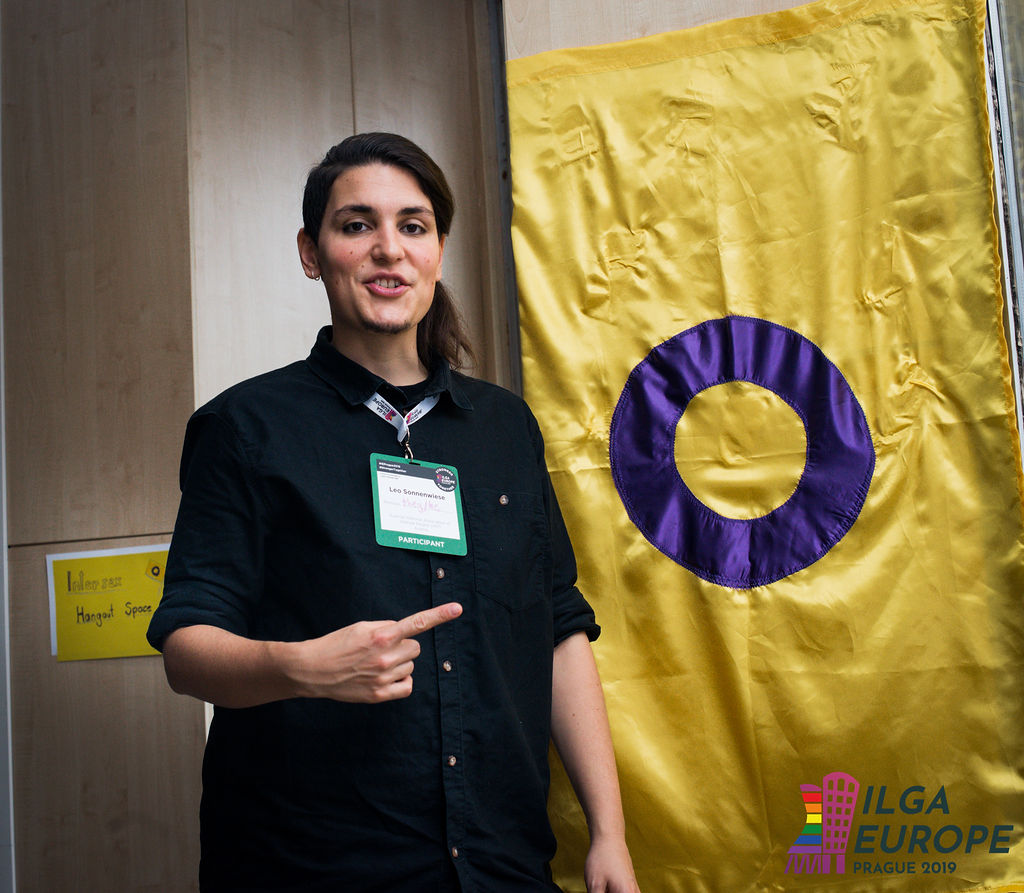
To mark #IntersexAwarenessWeeks we look into the efforts and experiences of activists in Greece, who worked for many months alongside the national government, resulting in the country becoming just the fifth in the world to ban intersex genital mutilations on children.
July 19 was a historic day as Greece became the fifth country on the planet to ban genital mutilations on intersex children. Intersex minors under the age of 15, living in Greece, are now protected from surgical operations and other invasive treatments aimed to align their sex characteristics to binary male or female categories.
These unnecessary, non-consensual and abusive interventions have already been banned in four EU countries, Germany, Iceland, Malta, Portugal, and in some regions of Spain. Now Greece has joined these countries in the protection of the bodily integrity of intersex people, a human right that the United Nations, the Council of Europe and the European Union have been calling for for a long time.
How did this happen?
The advocacy work of Intersex Greece has been crucial in bringing this forward thinking legislative change about. During our Annual Conference in Sofia, Nikoletta Pikramenou and Eleni Pateraki, from the organisation, shared their journey towards this historical win.
It all began in 2021 when the Greek government formed a National Committee to design the National Strategic Plan on LGBTQI+ Equality. Intersex Greece submitted a report on the situation of intersex rights. Thanks to this work, the National Plan included, for the first time, a separate section with intersex people’s demands.
Over the course of the following year, Intersex Greece became a registered organisation as well as an ILGA-Europe grantee. They relied on OII-Europe for guidance and attended meetings with the government and the Ministry of Health. LGBT organisations in the country gave interviews to the media and built relations with political representatives.
Intersex Greece worked as a team to best represent the intersex community. While their advocacy strategy relied on the power of personal stories, they made sure no individual felt pressured to come out as intersex.
A week before the vote, Irene Simeonidou, Secretary of Intersex Greece and mother of an intersex child, shared her story with the Greek Parliament. “13 years ago, when I was five months pregnant, two obstetricians at the local hospital suggested, very insistently, that we must terminate the healthy and desirable baby I was carrying because it had an extra X on the sex chromosome,” Irene said. Her testimony shook members of the parliament.
Finally, on 19 July, the bill was voted in and became a law.
In the lead-up to this historic moment, the Intersex Greece team encountered obstacles, due to their limited staff and resources, the emotional stress, and the difficulties of keeping a balance between voluntary activism and their personal and professional lives.
“Our struggles don’t end here. We are here, we are real, we are together,” they remind us in relation to the recent bill.
Hate against intersex people in Greece
Supported by ILGA-Europe, Intersex Greece conducted the first study on hate against intersex people in Greece earlier this year. The conclusions show that negative attitudes towards intersex people prevail in the country, and as a result the implementation of the legislation will be extremely challenging. You can learn more about this research in this moving video developed by Intersex Greece.
Shortcomings in intersex people’s rights in the EU
This year at ILGA-Europe we introduced an Intersex Bodily Integrity category in our Rainbow Map, expanding our assessment of this legislative area from 1 criterion to 4. This is because the introduction of bans in an increasing number of states has helped to clarify the key components in those bans; the new criteria lay out not only the demand that a ban be in place, but also what components the ban should include to meet a minimum standard of human rights protection and effectiveness.
In these countries and territories that receive points on the Rainbow Map, medical practitioners or other professionals are prohibited by law from conducting any kind of surgical or medical intervention on an intersex minor when the intervention has no medical necessity and can be avoided or postponed until the person can provide informed consent. However, in all cases, these bans have serious shortcomings, including that they include exceptions for certain conditions and do not provide universal protection.
The ban in IGM in Greece, is unique, in that in addition to banning surgical interventions, it also bans hormonal interventions that target intersex children – a key demand of intersex human rights organisations.
The work of Intersex Greece and other LGBTI activists in Greece is cut out now to have this legislation fully implemented. And the work of LGBTI activists across the European region is to push governments and policy makers to introduce and shore-up existing legislation to fully respect and protect the human rights of intersex people.
Intersex people exist in every country in the world. These Intersex Awareness Weeks, we reiterate that full autonomy over their own bodies from birth onwards is an inalienable human right for intersex people, and that like every individual, they deserve to live freely, safely and equally in our societies.
Joint statement on Protecting Abortion Access in Europe

AS the decision by the United States Supreme Court overturning Roe v. Wade, thereby dismantling the US constitutional right to abortion, ILGA-europe joins the center for reproductive rights, alongside many other organisations calling on european decision makers to remove impediments in access to abortion care.
The decision by the United States Supreme Court in Dobbs vs. Jackson Women’s Health Organisation overturns Roe v. Wade, thereby dismantling the US constitutional right to abortion. The decision will have a profound and devastating impact.
As local and global women’s rights, human rights and sexual and reproductive health and rights organisations working in Europe, we express our profound solidarity with the millions of people in the United States whose right to essential reproductive health care has been taken away by this decision and with all of those who have sought
to protect and uphold this right.
Children born intersex are at risk in most European countries. Here’s why
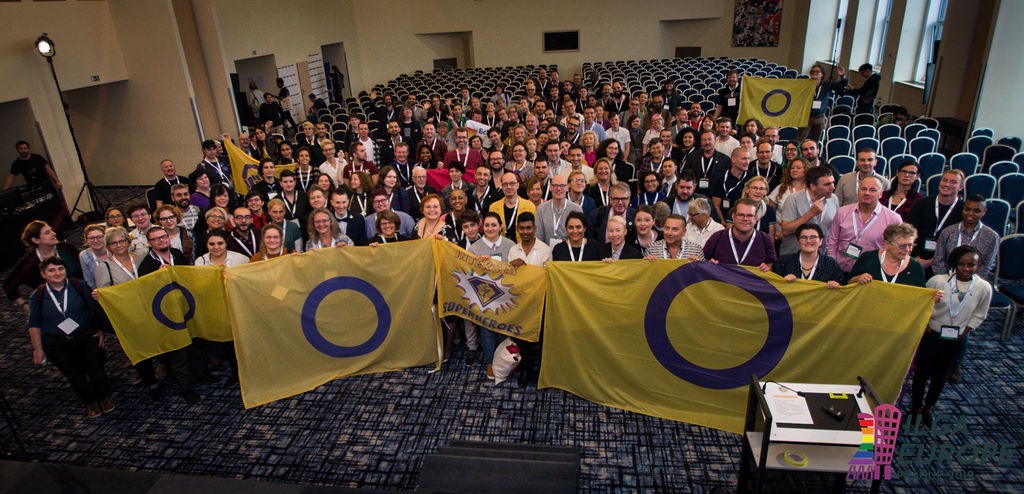
ILGA-Europe’s Rainbow Map of the legal situation for LGBTI people in Europe has a brand-new category: Intersex Bodily Integrity. It’s an essential expansion, because in across Europe and Central Asia, intersex people, and especially children, are still at risk.
In a world where the overwhelming majority of people and governments have limited or no understanding of variations of sex characteristics, the existence of intersex people and their bodies is barely recognised. But intersex people, that is people who are born with a reproductive or sexual anatomy different from what society expects of women or men’s bodies, make up around 1.7% of the population, which is comparable to the number of people born with red hair.
Because of this lack of understanding and acceptance, healthy intersex bodies are considered to be a medical problem that needs to be fixed by surgical, hormonal, other medical and sometimes psychological means. Intersex people face human rights violations, including having their bodily integrity compromised as infants, when doctors decide to ‘fix’ them.
Published in May 2022, ILGA-Europe’s Rainbow Map and Index annually ranks 49 European countries on their respective legal and policy practices for LGBTI people. Although ILGA-Europe has been monitoring intersex genital mutilation for some time now, and advocating on behalf of intersex people, this year we’ve introduced an Intersex Bodily Integrity category, expanding the issues that we monitored previously, covering the different issues the heading captures.
The Map finds that only Germany and Iceland have joined Malta, Portugal and some regions in Spain in banning medical interventions on intersex children before they are able to give informed consent. This means that in these countries and territories medical practitioners or other professionals are prohibited by law from conducting any kind of surgical or medical intervention on an intersex minor when the intervention has no medical necessity and can be avoided or postponed until the person can provide informed consent. However, in all cases, these bans have serious shortcomings, including that they include exceptions for certain conditions and do not provide universal protection.
Alongside, ILGA-Europe’s Annual Review of the Human Rights Situation of LGBTI people in Europe and Central Asia, found this year that Austria, Cyprus, Belgium and France have tabled prohibition proposals.
Not one of the 49 countries analysed in the Rainbow Europe Map have been awarded points for the other three criteria under Intersex bodily integrity category: universality of prohibition of medical interventions; existence of effective monitoring mechanisms; and access to justice for victims and reparations. Not even Malta, which occupies the top position on the Rainbow Europe Map for the seventh year in a row, has been awarded points.
However, according to OII Europe, the only intersex-led umbrella organisation working for human rights of intersex people in Europe, there are reasons for hope. “We are observing a growing will among European governments to combat violence against intersex persons”, said Dan Christian Ghattas, Executive Director of OII Europe in the launch of their 2021 Good Practice Map.
Intersex people exist in every country in the region and the world and they must be protected by legislation and policy makers so they can live freely, safely and equally in our societies. If governments take the right steps, the Rainbow Map can look differently for intersex people next year.
Behind the smokescreen of anti-LGBTI rhetoric in Europe, there’s a groundswell of allied determination to tackle hatred, report finds
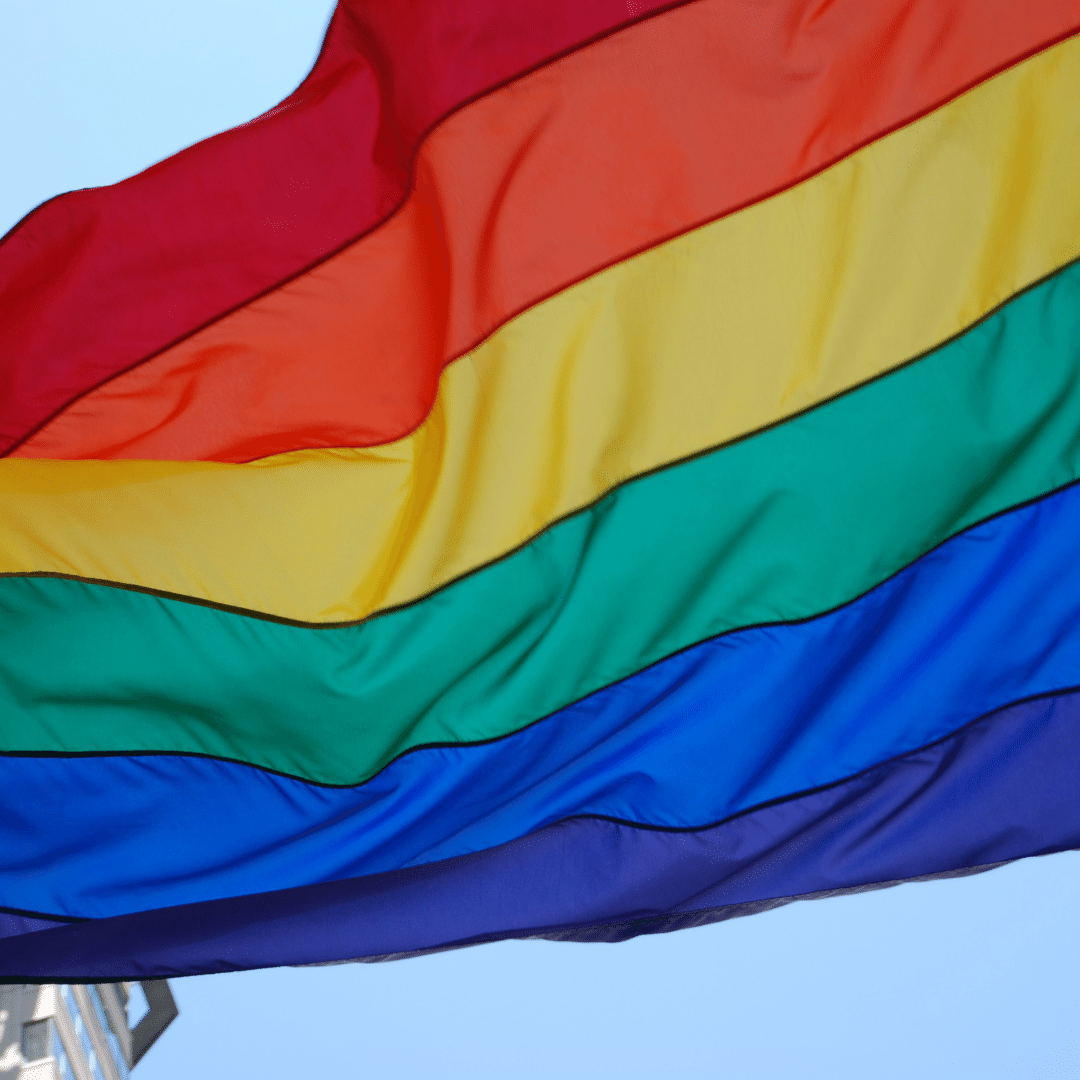
A report from the leading LGBTI organisation in Europe finds that amid a rise in official anti-LGBTI rhetoric fueling a wave of hate crime in every country in Europe, there is a growing institutional resolve to tackle hatred and exclusion.
Published today, February 15, 2022, ILGA-Europe’s Annual Review of the Human Rights Situation of LGBTI people in Europe and Central Asia finds that while there was a staggering rise in 2021 of anti-LGBTI rhetoric from politicians and other leaders, fuelling a wave of violence, with anti-LGBTI hate crime reported in every country, the response to this has been an allied determination in many countries, and at the European level, to tackle hatred and exclusion of LGBTI people.
Politicians in countries across Europe, not just in the usually reported Hungary and Poland, have continued to demonise LGBTI people over the past year, leading to a stark rise in anti-LGBTI attacks, burning of rainbow flags, and targeting of young LGBTI people in particular. A particular low point of the year came on June 15, with Hungary’s introduction of legislation which introduced a ban on the “portrayal and the promotion of gender identity different from sex at birth, the change of sex and homosexuality” for persons under 18.
Reported violence against LGBTI people in this context across Europe was rife. Germany, for instance, had a 39% increase in anti-LGBTI hate crime, while a new app in France, where users can report anti-LGBTI hate crimes, collected reports of 3,896 incidents in its first year. In the second year of the COVID-19 pandemic, domestic violence against LGBTI family members continued to take place widely. There were murders, assaults, corrective rapes, and anti-LGBTI police brutality. In many countries where police brutality took place, the police were not held accountable.
Anti-gender and anti-trans rhetoric have remained widespread, often targeting youth in particular. The narrative pitching trans rights against women’s rights also continued apace this year, and in this context there was stagnation in legal gender recognition (LGR) reform in many countries.
According to Executive Director of ILGA-Europe, Evelyne Paradis: “The spread of anti-LGBTI and trans exclusionary rhetoric outlined in this report has a very real negative impact on people’s lives. In country after country, we see how it negatively impacts people’s mental health and their sense of safety, their access to employment and the overall ability to progress much needed legal protection. At this moment in time, it is essential we remind politicians, media, academics – and sadly even some civil society actors – that real people’s lives are at stake in every country across the region, because of the political scapegoating of LGBTI people.”
In the context of this political scapegoating, national human rights institutions (NHRIs) and courts in many countries have begun to strengthen their work to protect the rights of LGBTI people. The European Court of Human Rights delivered several positive judgments this year, on hate crimes, freedom of assembly, LGR and family rights.
By far the strongest commitment to LGBTI human rights from European Union level came when the European Commission (EC) in July opened landmark infringement procedures against both Hungary and Poland. The European Parliament also adopted its resolution on LGBTIQ rights in the EU, strongly supporting the EC’s objective to propose legislation in several areas of protecting LGBTI rights, and condemning where member states have not been respecting EU law as regards LGBTI rights.
Said Katrin Hugendubel, Advocacy Director at ILGA-Europe, “This report narrates an unparalleled year in Europe, with regional and national institutions and courts taking their obligations to the human rights of LGBTI people with utmost gravity amid the now crystal clear escalation of the instrumentalisation of hatred against LGBTI people for political gain and expanded power. The advance of using hatred of any minority as an instrument of political gain, which we have seen throughout history, must be addressed and halted with allied determination across the region.”
It is also clear from this report that state-sponsored anti-LGBTI rhetoric and legislation is not matched by public opinion. Support for LGBTI people has never been stronger. In Hungary, for instance, a representative poll commissioned by Amnesty International Hungary and Háttér Society and conducted by polling agency Medián between 13 and 19 July 2021, found that 73% of Hungarians reject the government’s false claim that gay and lesbian people abuse or harm children.
A clear majority of Hungarian society (74,5%) believe that transgender people should be able to change their gender and name in their official document, while 59% support same-sex marriage. Hardly any Serbians know trans people, but 60% think they should be protected from discrimination. 68% of Romanians think all families, including rainbow families, should be protected, while 40% of Bulgarians would support a party that is pro-LGBTI.
According to Soudeh Rad, co-chair of the ILGA-Europe board: “While these numbers and outcomes of similar polls are promising as heartwarming illustrations of the strength and impact of the work carried out by civil society and the LGBTI movement at global, regional, and local levels, we must not forget the struggles activists across Europe and Central Asia face in realising a world where everyone can enjoy their human right to fully be themselves.”
Check out our Annual Review 2022.
Navigate the Annual Review chapters by country, institution or theme at our Rainbow Europe module!
For further comment, please contact ILGA-Europe’s Communications and Media Officer Ana Muñoz Padrós at ana@ilga-europe.org or +32 493356055.
Annual Review 2022
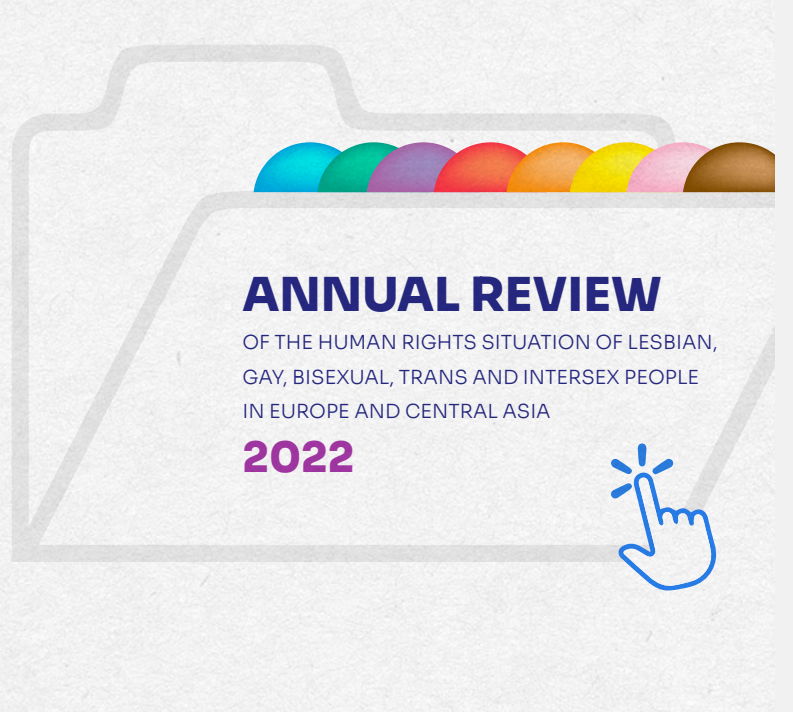
The Human Rights Situation of Lesbian, Gay, Bisexual, Trans and Intersex People in Europe and Central Asia between January-December 2021.
The Annual Review is ILGA-Europe’s annual publication documenting legal, political and social developments in 54 countries and 4 European institutions over the past calendar year. It is a unique report tracking key positive and negative trends in relation to LGBTI equality and human rights in Europe and Central Asia.
This year’s review finds that behind the smokescreen of anti-LGBTI rhetoric in Europe, there’s a groundswell of allied determination to tackle hatred.
Bodily Integrity
For more information, contact: Cianán Russell, Senior Policy Officer
This includes being protected from intersex genital mutilation (IGM), forced sterilisation and forced medicalisation. Bodily integrity also means increased access to many healthcare fundamentals, like sexual and reproductive healthcare and rights – and assisted reproductive technologies and insurance coverage.
At ILGA-Europe, we work to protect LGBTI people’s bodily integrity in a few ways.
To start with, our team supports the work of the EU and Council of Europe to develop international human rights standards – and ensures that violations are well-documented by national and international bodies.
We also support medical and ethical bodies in developing guidance by working with the Council of Europe Committee on Bioethics, among others. Besides, we support national policy development processes and coordinate with national civil society to support ICD-11 implementation. Last but not least, we engage in strategic litigation as well as advocacy with NGOs working on similar issues.
Overall, our work to sustain LGBTI people’s bodily integrity revolves around a few focus areas: sexual and reproductive health and rights, IGM and trans bodily integrity.
Here is how we work with each of these focus areas:
Sexual and reproductive health and rights
Protecting sexual and reproductive health and rights comes down to a few actions. Specifically, we advocate for non-discriminatory access to assisted reproductive technology (ART) — regardless of SOGIESC. We also advocate for access to insurance coverage for ARTs, based on the body of each individual.
At ILGA-Europe, we specifically work to advocate for sexual and reproductive health and rights by collaborating with NGOs working on similar issues (i.e. abortion rights). And across the board, we collaborate with the EU and CoE in their development of international human rights standards, support national advocacy and engage in strategic litigation.
Intersex genital mutilation (IGM)
Prohibiting intersex mutilation is one of the goals we work towards at ILGA-Europe. That means we advocate to legally ban IGM on national levels; to support infrastructure for intersex people and their families based on human rights principles; and to develop human rights-based medical guidelines on both national and international levels.
Our advocacy looks like assisting efforts to document IGM and its consequences and supporting medical and ethical bodies in developing guidance. We also collaborate with NGOs working on similar issues, like FGM.
Trans bodily integrity
Some governments continue to infringe on the bodily integrity of their trans citizens, in Europe and beyond. So at ILGA-Europe, we advocate against these human rights violations — like forced medicalisation, sterilisation and pathologisation. Instead, we advocate for informed consent-based transition-related healthcare (TRHC); including TRHC in insurance coverage; and SRHR protections based on individual body parts.
We do this work by engaging in strategic litigation and supporting national LGR and TRHC policy development processes. We also collaborate with the European Professional Association for Transgender Health (EPATH) and the World Professional Association for Transgender Health (WPATH) on our advocacy. Besides, we offer support to ICD-11 implementation — and develop international human rights standards with the EU.
Subscribe for more info on this topic
For more information, contact: Cianán Russell, Senior Policy Officer
How to be a great intersex ally

Even within the LGBTI community, intersex people continue to be overlooked, and that’s something we urgently need to change. Here are our top tips for getting on the right page and supporting the human rights of intersex people!
In a world where the overwhelming majority of people and governments only know and accept two sexes (‘male’ and ‘female’) the existence of intersex people and their bodies is barely recognised. Instead, healthy intersex bodies are considered to be a medical problem that needs to be fixed by surgical, hormonal, other medical and sometimes psychological means. Intersex people face human rights violations, including having their bodily integrity compromised as infants, when doctors decide to ‘fix’ them.
“I have to say that I exist, I have to say that I’m intersex and I have to do things in order for other intersex people and future generations not to have to go through what I’ve been through,” Audrey Aegerter of InterAction Suisse told us in an inspiring Voices of ILGA-Europe interview.
Today, thanks to the brave and dedicated work of intersex activists like Audrey across Europe, the silence and lack of awareness that previously surrounded intersex issues have been replaced by increased interest from NGO allies and policy-makers, more media coverage and strong political statements.
When LGBTI activists find out about the life experiences of the intersex people in our community, often their first reaction is to ask: How can I become an intersex ally? What can I do?
There are some easy things that you can do that really help:
1. Talk about it!
Lack of knowledge is one of the key reasons for the human rights violations and the discrimination intersex people face. By spreading the word about the existence of intersex people and the human rights violations and discrimination they face, you work towards making society a safer and more welcoming space for intersex people. This includes making intersex people’s existence visible by mainstreaming intersex issues in all areas of life and politics. So, read up on the experience of intersex people and start some conversations!
2. Create a safe space for intersex people
It is very likely that you already have intersex people in your organisation, at your work place or even amongst your friends and family; therefore creating a safe space for them to come out is crucial. Those individuals might not feel safe enough to come out yet, but if they know they are in a space of acceptance, they just might share their identity with you. Let them know it’s okay by sharing your recognition of the issues intersex people face.
3. Integrate the ‘I’ into your work
Inform your colleagues and the members of your networks on intersex human rights issues. As a first step, you might consider asking intersex activists if they can provide training or advice for you. This will help you better understand intersex issues, the challenges intersex organisations face and how you can effectively work for the improvement of intersex people’s situation in your country.
4. Support intersex activists and NGOs
Being visibly intersex is still a very difficult task. Despite this fact, the number of intersex activists and organisations is growing but they all work with almost none or very limited funding. Becoming an intersex activist most often means having to forfeit the chance of having a regular income. Due to the lack of funding, you are expected to provide professional and highly specialised expertise for free. Helping intersex activists and NGOs financially to perform their task is key to ensuring they can share the unique expertise they have.
5. Help create new alliances
Work with intersex NGOs and help them to create new alliances. Intersex human rights organisations are the best contact point for getting up-to-date information on the human rights violations faced by intersex people. They have long-term experience in advocating for intersex human rights.
6. Be a promoter
Use your social media to promote the statements of international human rights bodies on intersex. For instance, encouraging all relevant stakeholders to implement the recommendations of the Council of Europe’s Human Rights Commissioner will be very beneficial.
Monumental shift in global health for trans and gender diverse people
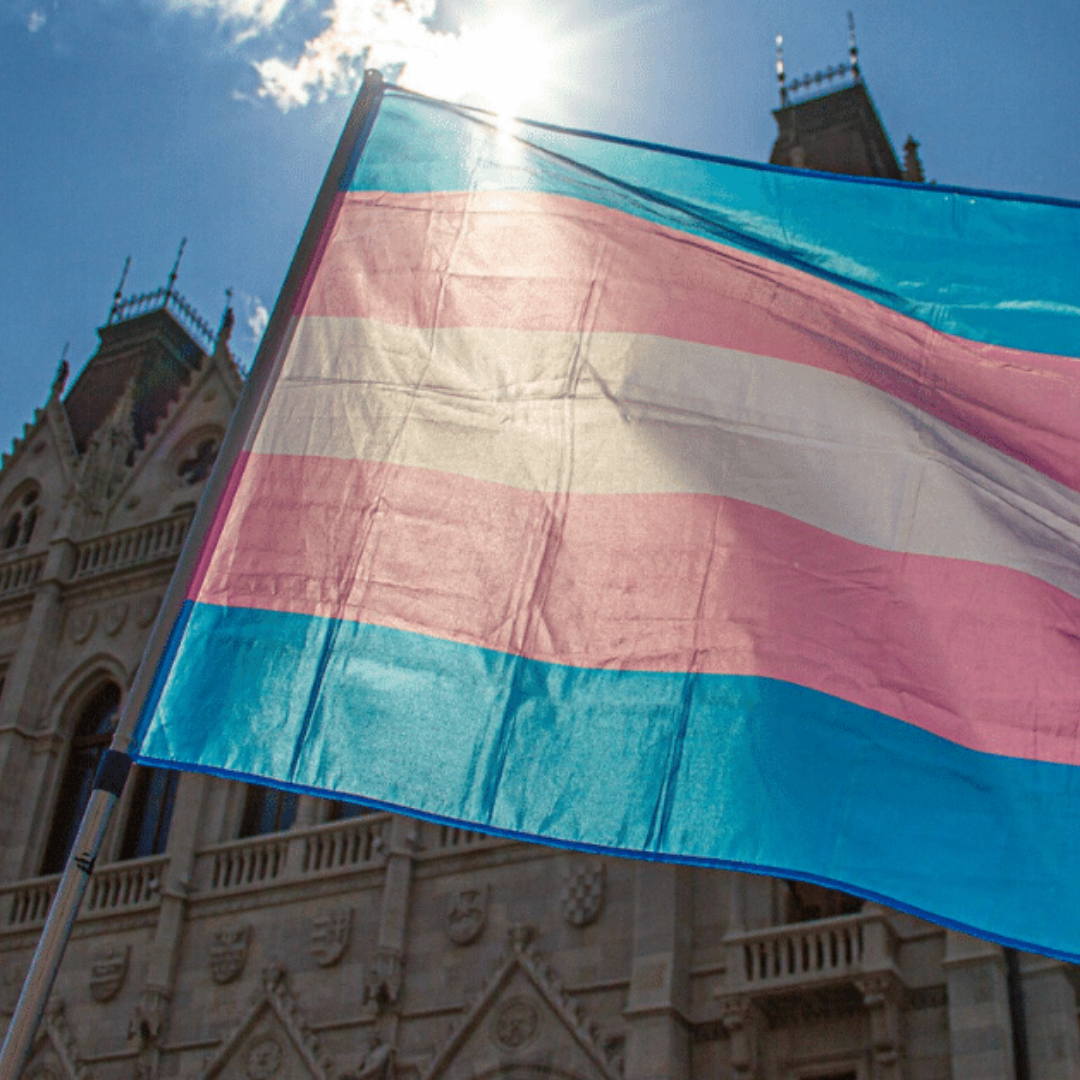
Today, after nearly a decade of efforts from trans and gender diverse activists and organisations, and their allies, the World Health Assembly approved the newest update to the International Classification of Diseases (11th Revision; ICD-11), which depsychopathologises (i.e. removes assertions of mental disease or disorder) trans and gender diverse people1).
Micah Grzywnowicz, Co-Chair of the Executive Board of ILGA-Europe, says, “ICD-11 represents a monumental shift in the global health for trans and gender diverse people. In previous revisions of ICD from the time that trans-related diagnoses were added in 1965 (8th Revision), these diagnoses were listed as either ‘Sexual deviations’ or ‘Mental and behavioural disorders’. The 11th revision accomplishes several steps at once, including the depsychopathologisation of trans and gender diverse identities.”
Firstly, the old diagnoses, predicated on the understanding that trans identities were mental disorders in themselves, have been deleted entirely. This is extremely important, as both the old category names and their corresponding content represent a history laden with struggle, oppression, forced medicalisation, stigma, and marginalisation experienced by trans and gender diverse people in the context of healthcare.
Second, a new chapter in the 11th Revision, “Conditions related to sexual health”, includes new trans-related diagnoses, as well as codes related to sexual and reproductive health. The new chapter is non-pathologising (i.e. it does not label its categories as “disorders” automatically). This new classification approach indicates a belief from the World Health Organisation that trans and gender diverse people are not inherently “disordered”, nor that their identities as such are related to their mental wellness.
Finally, the new categories, collectively “Gender incongruence”, are defined in ways that do not imply that the assignment of this category corresponds with a disease or a disorder. These new categories can only be assigned when the trans or gender diverse person themselves indicates distress with their body (also known as dysphoria) and are in need of medical interventions such as hormones, laser hair removal, or surgeries to address these feelings.
There is, however, a very long way to go on several fronts2. Most alarmingly, as Dan Christian Ghattas, Executive Director of OII Europe notes, “ICD-11 cements the pathologistion of intersex people by introducing harmful language such as ‘disorders of sex development’, incorporating supporting and explanatory materials that are associated with human rights violations, and failing to take steps to address or eliminate human rights violations against intersex people in medical settings.” See the ICD-11 press release jointly prepared by intersex organisations worldwide for more information.
Additionally, ICD-11 introduces a problematic code: “Gender incongruence in childhood”. Trans and gender diverse children who have not yet experienced the onset of puberty do not need medical interventions, but instead only love, support, information, and access to counselling. The category instead serves to pathologise gender curiousity, creativity, and exploration in children.
Finally, the global approval of ICD-11 represents just one step in a list of many, the next of which is national-level implementation of the Revision. National-level policymakers and stakeholders must work together to ensure the full implementation of the 11th Revision and full coverage of all medical procedures associated with the new categories within health insurance systems.
1. ICD-11 was announced by the WHO Executive Board in June 2018, but still needed to be ratified by the Assembly to go into force.
2. For detailed information on next steps, please refer to the work of the global coordinating group on depathologisation, hosted by GATE.
Protecting Intersex People in Europe
A toolkit for law and policymakers
Bodily autonomy – making one’s own informed decisions about one’s body and what happens to it – is a fundamental human right, repeatedly enshrined throughout myriad human rights instruments globally. Each of us holds this right individually. However, it is not equally protected nor enforced for everyone. Across Europe, as well as much of the world, the right to bodily autonomy is regularly and greviously violated on the basis of sex characteristics. These violations are increasingly documented, and today, people with variations of sex characteristics are internationally recognised as victims of harmful medical practice and other human rights violations.
From 2009 to the present, United Nations Treaty Bodies have called on Member States to stop human rights violations against intersex people 49 times. Of these, Council of Europe Member States have received 26 UN Treaty Body recommendations, 15 of these in the past two years alone. The Yogyakarta Principles plus 10 call for protection of intersex people under the ground of “sex characteristics” and for ending human rights violations on intersex people, including protecting their right to bodily and mental integrity.
Additionally, European bodies such as the Parliamentary Assembly of the Council of Europe and the European Parliament have both passed resolutions (2017 and 2019, respectively) calling for, among other protections and policies, the prohibition of sex-“normalising” surgery and other treatments practised on intersex children without their informed consent in national law among their respective Member States.
On a national level, so far only Malta (2015) and Portugal (2018) have established protections for intersex people from violations of their bodily integrity and, together with Greece (2016), protection against discrimination on the ground of “sex characteristics”.
Additionally, courts have begun to recognise and adjudicate on the human rights violations faced by intersex people, both with respect to bodily integrity and gender markers.
ILGA-Europe and OII-Europe are delighted to present the law and policymakers with this toolkit and accompanying appendix and checklist so that we can work together to ensure the protection of all people on the basis of sex characteristics, including those most vulnerable to violations and abuses.
European Parliament adopts landmark resolution on intersex rights
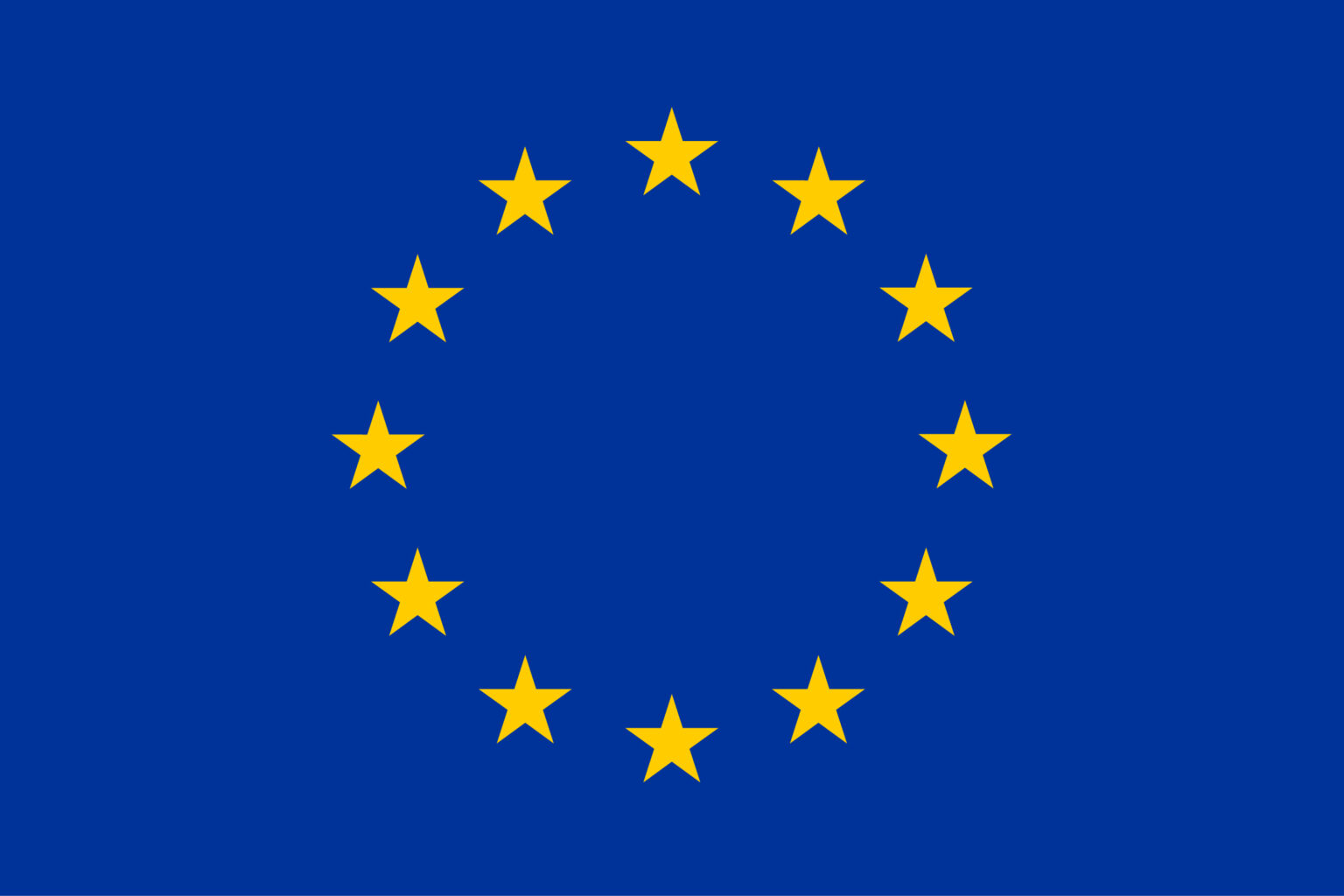
Press Statement: Today, on 14 February 2019, the European Parliament has adopted a landmark Resolution on the Rights of Intersex People.
By adopting this resolution, the European Parliament sets a clear standard within the European Union for the protection of intersex people’s bodily integrity and human rights. The resolution complements the ground-breaking 2017 intersex resolution ‘Promoting the human rights of and eliminating discrimination against intersex people’ adopted by the Parliamentary Assembly of the Council of Europe.
“We applaud the European Parliament for issuing this outstanding resolution”, says Kitty Anderson, Co-Chair of OII Europe. “It is clearly based on an in-depth knowledge about the human rights violations that intersex people face in within the European Union.”
“ILGA-Europe enthusiastically celebrates this historic resolution as the fruit of enormous labour on the part of intersex activist across Europe”, adds Evelyne Paradis, Executive Director of ILGA-Europe.
In its resolution, the European Parliament “strongly condemns sex-normalising treatments and surgery” and encourages Member States to adopt legislation that protect the bodily integrity of intersex people “as soon as possible”. It also confirms that intersex people are “exposed to multiple instances of violence and discrimination in the European Union” and calls on the European Commission and the Members States to propose legislation to address these issues.
Other issues addressed by the resolution include the need of adequate counselling and support for intersex people and their families, measures to end the stigma and pathologisation intersex people face and increased funding for intersex-led civil society organisations. During the debate which preceded the voting, the members of the European Parliament almost unanimously spoke in favour of the resolution and emphasised that “human rights violations experienced by [intersex people] are significant” and that “there is nothing unhealthy about being intersex”. Minister Delegate George Ciamba, in his statement for the Romanian presidency, confirmed that “extending the right to equal treatment to intersex people is entirely within the spirit of our common European values and of our common campaign for inclusiveness”.
“This resolution is setting a standard within the European Union”, says Dan Christian Ghattas, Executive Director of OII Europe. “To date the United Nations treaty bodies have reprimanded EU Members States 22 times. Ten times alone in the past two years. A 2019 German study which compares the annual numbers of so-called ‘normalising surgeries’ on children from age 0 to 9, shows no decrease of these interventions – despite the fact that in Germany intersex human rights violations have been addressed since the nineties and have been increasingly in the open and on the political agenda since the CEDAW recommendations issued in 2008. We need Member States and the European Commission to step up. On a European level we need a clarification that intersex people are protected against the discrimination and other human rights violations they face and are explicitly included under the protective ground of “sex”.”
“Putting an end to genital mutilation of intersex infants and children is a matter of urgency and the European Parliament is very clear about that,” states Miriam van der Have, Co-Chair of OII Europe. “As for the EU Member States, the EP resolution has set a clear agenda for the next steps that they need to take to protect intersex people’s rights: Member States need to establish legislation that prohibits unconsented non-vital medical interventions; they need to include intersex people in anti-discrimination legislation and to implement measures that establish adequate non-pathologising counselling and support for intersex children and adults and their families; and they need to increase funding for intersex organisations because these are key in raising awareness about intersex people’s needs.”
- OIIEurope and ILGA-Europe were consulted by the LGBTI Intergroup and the LIBE Committee of the European Parliament in preparation of this resolution.
- This is a joint press statement of OII Europe and ILGA Europe.
Discover how to frame your messages about intersex issues
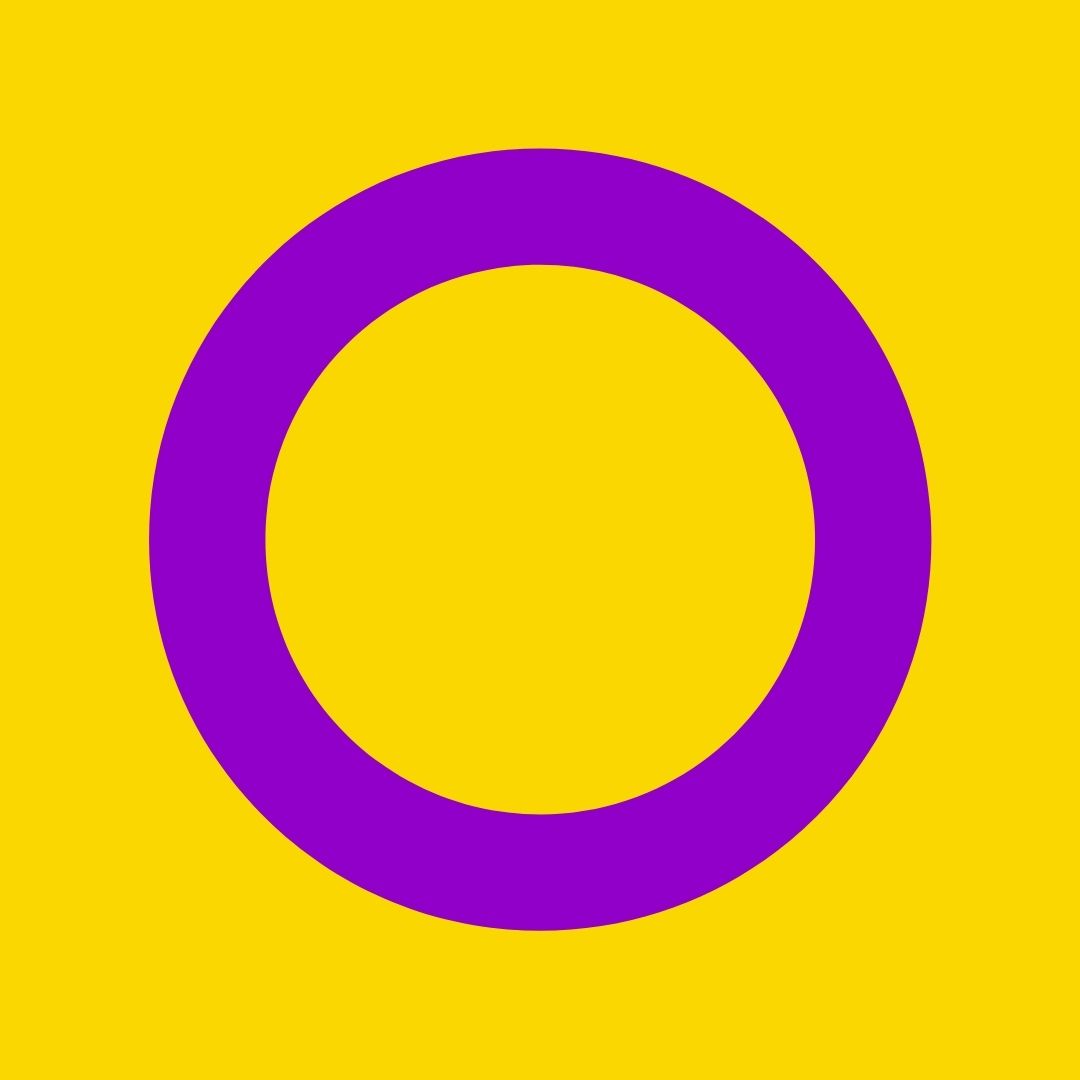
Are you campaigning for intersex rights in your country? Are you supporting intersex groups in their campaigning efforts? Discover how to frame your messages about intersex issues.
Register now for ILGA-Europe’s interactive webinar ‘Campaigning and message framing for intersex rights’.
REGISTRATION now CLOSED
ILGA-Europe will host an interactive webinar on campaigning and message framing for LGBTI activists and allies working on intersex rights. We will look into the experience of activists around Europe and put into practice the framing techniques we explored in the previous webinars of the strategic communication series.
You will hear from Audrey Aegerter, InterAction – Switzerland, Alessandro Comeni, OII-Italy, Irene Kuzemko and Loé Petit Collectif Intersexes et Allié.e.s. – OII France.
Watch our video recording of the webinar
World Health Organisation removes trans identities from mental disorder list
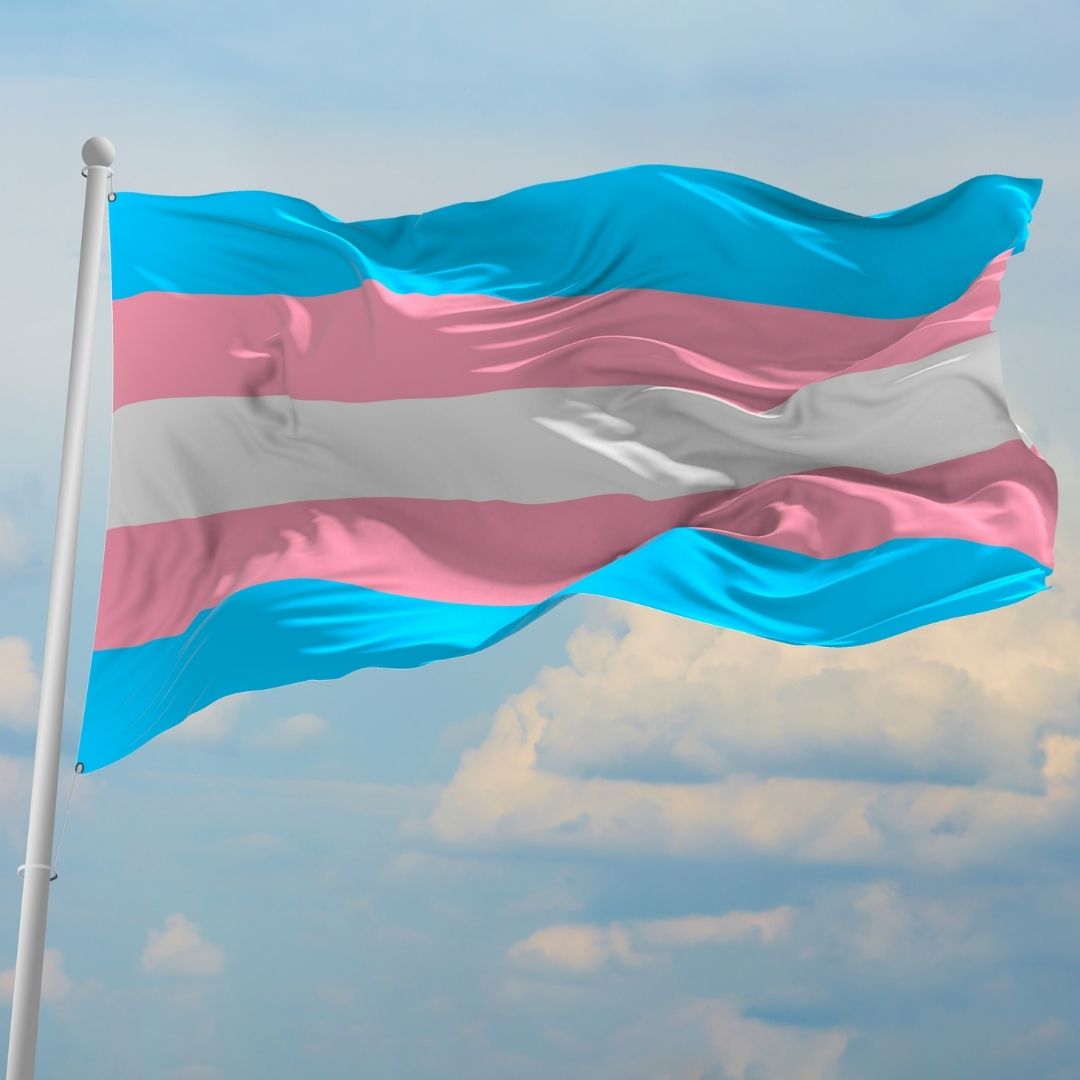
The World Health Organisation has announced the completion of the ICD-11 and deleted all trans-related categories from the ICD Chapter on Mental and Behavioural Disorders.
The World Health Organisation (WHO) announced yesterday (18 June 2018) the completion of the ICD-11 and deleted all trans-related categories from the ICD Chapter on Mental and Behavioural Disorders. This is the outcome of more than a decade of battle and we congratulate all activists who’ve been involved in bringing this important victory about!
New trans-related categories have been introduced, namely on Gender Incongruence of Adolescence and Adulthood and Gender Incongruence of Childhood, in the chapter on sexual health (chapter . By placing trans-related categories outside the chapter of mental and behavioural disorders, the WHO is at last depathologising trans identities!
The announcement yesterday is historic step, but not the final step yet: Now, we will all together need to make sure that these changes are implemented at national level to ensure depathologisation while guaranteeing trans people have access to accessible, affordable and human rights based trans specific healthcare based on informed consent without the need for any psychological diagnosis.
And things also remain to be changed within the ICD. We are concerned that the diagnosis of ‘gender incongruence in childhood’ has been retained in the final version while gender variance in childhood does not require any medical intervention. The only thing a child needs is a supportive environment at home and school where they can explore their identity.
In addition, despite a number of international human rights bodies condemning medically unnecessary medical treatments imposed on intersex children, the ICD-11 now includes the term ‘disorders of sex development’ and continues to pathologise variations of sex characteristics. It’s precisely pathologisation that serves as justification to violate intersex children’s bodily integrity.
This is therefore not the end of the battle and we will continue to urge policy makers to fully protect and respect the right to health of trans people.
- Read WHO’s ICD-11 announcement here. The new ICD version will be presented for final approval at World Health Assembly in May 2019.
Portugal can still be legislative innovators on LGBTI equality – don’t stop now!
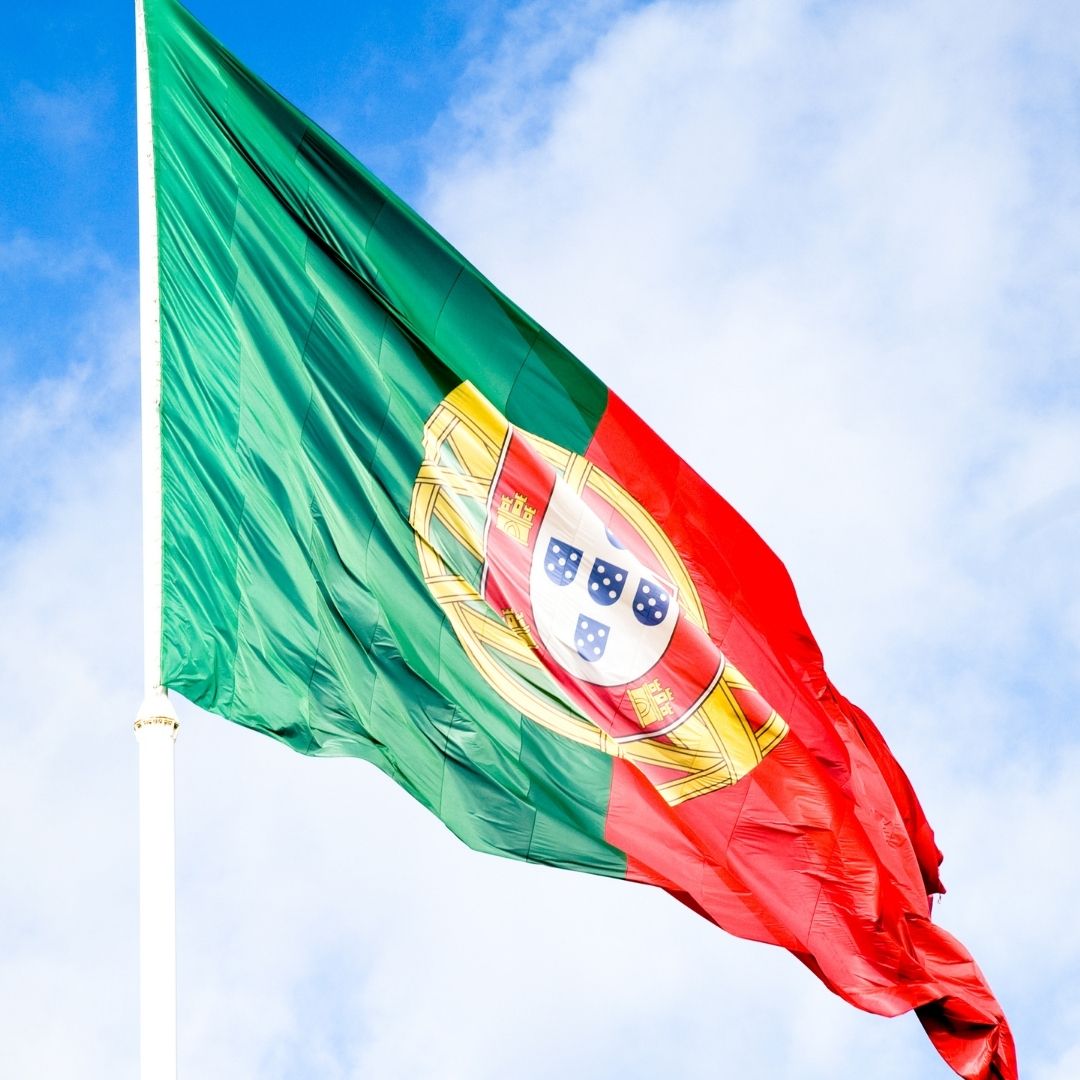
Update on the veto issued on 9 May by President of portugal, Marcelo Rebelo de Sousa.
Portuguese President Marcelo Rebelo de Sousa has chosen to veto the ground-breaking law passed by parliament on 13 April, proposing self-determination for trans people and banning unnecessary surgeries on intersex people. The announcement, issued late on Wednesday night (9 May 2018) is frustrating but not fatal.
The veto appears to centre on the legal gender recognition process for minors in Portugal, with the president suggesting that minors should have to obtain a medical opinion in order to change their gender marker.
ILGA-Europe, Transgender Europe-TGEU and OII Europe echo the call of the trans community in Portugal by reminding the President that equality for a few is not true equality. Young people must be able to access a legal gender recognition procedure that is fair and trusts them to know who they are.
The law received the support of a parliamentary majority, after MPs heard directly from trans people, their parents and families, LGBTI activists and experts.
As our member organisation ILGA Portugal commented last night: “We believe that the Portuguese Parliament has the power to overcome this veto and… it is necessary to take this path to the full guarantee of Human Rights for all trans persons”.
- For up-to-date information on the legal and policy situation for LGBTI people in Europe, visit our Rainbow Europe Module.
- The President’s statement on the veto is available here.
- The Council of Europe’s PACE General Rapporteur on the rights of LGBTI people Piet De Bruyn recorded a video message in support of the proposed law earlier this year.
- ILGA-Europe, TGEU and OII Europe had written directly to President Marcelo Rebelo de Sousa on 27 April, urging him to sign the law.
Urgent letter to the President of Portugal

ILGA-Europe, TGEU and OII Europe urge President Marcelo Rebelo de Sousa to sign the historic law as adopted by the Portuguese parliament on 13 April.
Two weeks ago we celebrated as Portugal voted to introduce self-determination and protection for intersex kids.
The reform provides everyone with one of the most basic fundamental rights, the right to be trusted to know who they are.
Now, there’s a risk that a presidential veto could derail the progress that LGBTI activists have worked for years to secure.
ILGA-Europe, TGEU, OII Europe, our partners and allies say in unison – don’t turn back the clock!
- We have written directly to President Marcelo Rebelo de Sousa, read our joint letter in full here.
- The Portuguese LGBTI movement have also urged the president to sign this bill into law without delay – and make history.
Portugal votes to respect the rights of trans and intersex people

The Portuguese parliament has voted to adopt a ground-breaking law which better protects and respects the right to self-determination and bodily integrity of trans and intersex people.
“Portugal is really making history today – this law will make Portugal only the second country worldwide to outlaw medically unnecessary treatments on intersex kids.” said Katrin Hugendubel, ILGA-Europe’s Advocacy Director, in reaction to the vote.
The law was supported by members of parliament this afternoon, following two years of very hard work by LGBTI activists in Portugal.
As a result, when this law comes into effect:
- People will be able to change their legal gender through a procedure based on self-determination. This means that the law finally recognises and respects that trans people themselves know best who they are and how they identify.
- Trans people will no longer need to be diagnosed with gender identity disorder in order to have their gender legally recognised.
- Young people aged 16 and older will be able to access this procedure.
- It will become illegal to perform unnecessary surgery on intersex children.
Portugal joins its European neighbours (Malta, Norway, Denmark, Ireland and Belgium) in opting for a model based on self-determination. Encouraging as it is that the number of countries who opt for this model is growing, there are still too few and more governments need to show leadership here.
However, the current law is silent about a number of critical questions. Now a lot of work needs to be done to ensure that this law is implemented effectively – through guidelines for the health care and education sector for example – to best protect the fundamental rights of trans and intersex people and addresses concerns raised by LGBTI NGOs during the drafting phase.
Hugendubel continued “ILGA-Europe are very relieved that the law based on self-determination was adopted and that it will be accessible to everyone over 16. We are also encouraged that politicians (despite the fact that some parties’ commitment to equality seemed to be wavering in the past few weeks) ultimately voted in favour of respect and common sense. We congratulate Portugal – and look forward to celebrating with our members and friends at the 2018 IDAHOT Forum taking place in Lisbon next month!”
- The Council of Europe’s PACE General Rapporteur on the rights of LGBTI people Piet De Bruyn recorded a video message in support of the proposed law earlier this year.
- The new law will not immediately come into effect; the act now needs to be approved by the President and then published in the official state journal.
- The final vote figures were being confirmed by activists attending the parliament’s plenary session at the time of this release, but the law was passed in the plenary vote at 13.30 CEST.